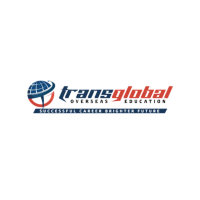MCA in Canada from India: A Complete Guide for Students

Strong 8k brings an ultra-HD IPTV experience to your living room and your pocket.
Canada, a land of stunning landscapes, progressive policies, and a thriving tech sector, beckons Indian students seeking world-class education and promising career prospects. An MCA in Canada from India can be a strategic step for Indian graduates aiming to specialize in computer applications and software development in a globalized market. This article explores the eligibility requirements, top universities, costs, and career outlook for Indian students pursuing an MCA in Canada.
Eligibility Criteria
Admission to an MCA program in Canada typically requires:
Bachelor's Degree: A completed bachelor's degree in Computer Science (CS), Information Technology (IT), or a closely related field from a recognized Indian university is mandatory.
Academic Record: Competitive universities seek students with strong academic transcripts, often requiring a minimum GPA of 3.0 on a 4.0 scale.
Standardized Tests: Some universities might require Graduate Record Examinations (GRE) or GMAT scores for specific programs. However, this is not universally applicable.
English Language Proficiency: Proof of English language proficiency through IELTS or TOEFL scores is a must. The minimum score requirements vary across universities.
Work Experience: While not always mandatory, relevant work experience in the IT industry can strengthen your application.
Letters of Recommendation: Typically two to three letters of recommendation from professors or professional supervisors are required.
Statement of Purpose: A well-crafted statement outlining your career aspirations, motivations for pursuing an MCA in Canada, and your academic/professional background is crucial.
Top Universities for MCA in Canada
Canada boasts several esteemed universities offering MCA programs. Here are some of the top contenders:
University of Toronto: Renowned for its rigorous academics and research focus, the University of Toronto's Master of Science in Computer Science (MCS) program offers a strong specialization in software systems.
University of Waterloo: A leader in computer science education, Waterloo offers a Master of Mathematics (MMath) in Computer Science with a specialization in Software Engineering, ideal for those seeking a blend of theoretical and practical knowledge.
University of British Columbia: The University of British Columbia's Master of Applied Science (MASc) in Computer Science provides a research-oriented program with a focus on areas like artificial intelligence, graphics, and networking.
University of Calgary: The University of Calgary's Master of Science (MSc) in Software Engineering program equips students with the skills to design, develop, and maintain complex software systems.
Other Reputable Institutions: Several other universities offer excellent MCA programs, including McGill University, McMaster University, Concordia University, and Simon Fraser University.
Cost Considerations
Studying abroad involves significant financial investment. Here's a breakdown of the costs to consider:
Tuition Fees: MCA program tuition fees in Canada typically range from CAD 30,000 to CAD 60,000 per year, depending on the university and program duration (usually 2-3 years).
Living Expenses: The cost of living varies depending on the city. Major cities can be expensive, with annual living expenses ranging from CAD 10,000 to CAD 20,000. Factor in accommodation, food, transportation, and other miscellaneous expenses.
Additional Costs: Budget for application fees, student visa fees, health insurance, travel costs, textbooks, and course materials.
Scholarship Opportunities
Several scholarships and financial aid options can help ease the financial burden. Here are some resources to explore:
University Scholarships: Many Canadian universities offer merit-based and need-based scholarships specifically for international students.
Government of Canada Scholarships: The Canadian government offers various scholarships and financial assistance programs for international students, including the Vanier Canada Graduate Scholarships (VCGS) and the Banting Postdoctoral Fellowships (BPDF).
Indian Government Scholarships: The Indian government also offers scholarships for students pursuing higher education abroad. Explore schemes like the Scholarship Scheme for Study in Canada (SSSC).
Career Opportunities in Canada
Canada's booming tech sector presents exciting opportunities for MCA graduates. The demand for skilled software developers, application architects, and IT specialists is on the rise. An MCA degree from a Canadian university equips you with the technical expertise and global exposure to excel in the job market. Graduates can find employment in various industries, including:
Software Development
IT Consulting
Enterprise Resource Planning (ERP)
Cloud Computing
Data Analytics
Cybersecurity
Benefits of Pursuing an MCA in Canada
Globally Recognized Education: A Canadian degree holds international recognition, enhancing your employability worldwide.
Cutting-Edge Curriculum: Canadian universities offer updated programs aligned with industry needs and advancements in technology.
Conclusion
Navigating the intricacies of studying abroad for an MCA in Canada can be daunting. A reputable study abroad consultant in Delhi can be your ally. Their expertise streamlines the application process, guides you towards scholarships, and offers invaluable advice on cultural adjustment. With their support, you can focus on achieving your academic goals and embarking on a transformative educational journey in Canada.
FAQs
1. What are the application deadlines for MCA programs in Canada?
Application deadlines for MCA programs in Canada vary by university. It's crucial to research individual program deadlines well in advance, as they can range from early fall (September/October) to spring (March/April). Aim to submit your application well before the deadline to ensure proper consideration.
2. Is there a difference between MCA and MCS programs in Canada?
While both MCA and MCS programs focus on computer applications, there can be subtle differences. MCA programs often have a stronger emphasis on practical applications and software development, while MCS programs might lean more towards theoretical computer science and research. Carefully review program descriptions and course structures to determine which best aligns with your career goals.
3. Can I work while studying for an MCA in Canada?
International students in Canada are generally allowed to work part-time on campus during semesters and full-time during breaks. This can help offset living expenses and gain valuable Canadian work experience. Be sure to check visa regulations and student permit conditions for specific work authorization details.
4. What are the post-graduation work permit options for MCA graduates in Canada?
Many MCA graduates in Canada are eligible for a Post-Graduation Work Permit (PGWP). This permit allows you to gain valuable Canadian work experience in your field of study for up to three years. The PGWP experience can significantly enhance your resume and pave the way for permanent residency opportunities in Canada.
5. How can a study abroad consultant help me pursue an MCA in Canada?
A study abroad consultant with expertise in Canadian education can be a valuable asset. They can guide you through the application process, help you identify scholarship opportunities, and offer advice on visa applications and cultural adjustment. Their experience can ease the complexities of studying abroad and ensure a smoother transition to your academic journey in Canada.
Note: IndiBlogHub features both user-submitted and editorial content. We do not verify third-party contributions. Read our Disclaimer and Privacy Policyfor details.


